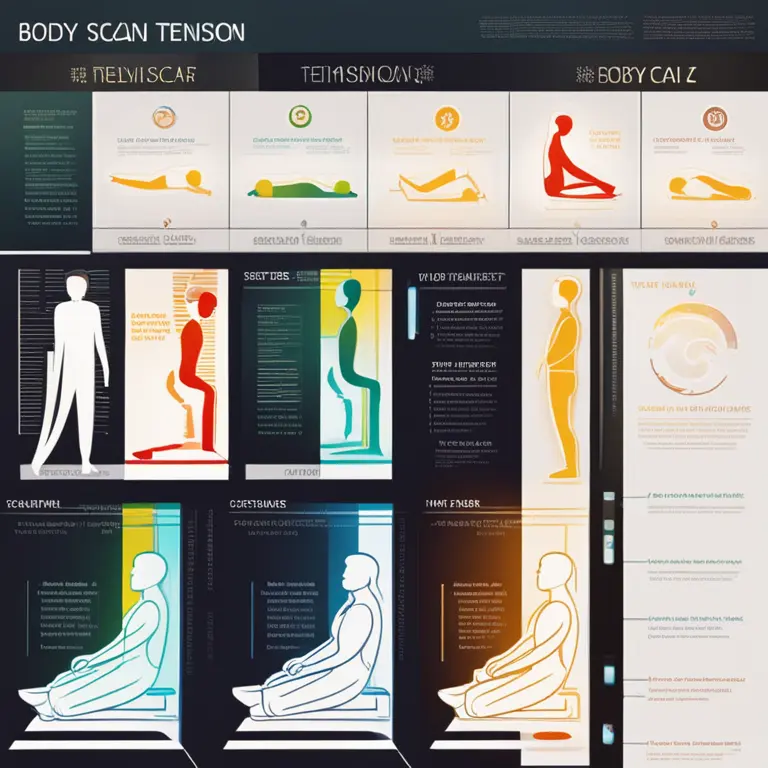
Harmonizing Mindfulness: Meditation for Mental Wellness
Delve into effective meditation practices and their role in promoting mental health, improving emotional well-being, and enhancing life quality.
article by Hina Kurosawa
Introduction to Meditation for Mental Health
Meditation has become a popular tool for maintaining mental health, especially as the world becomes increasingly fast-paced. Its roots date back thousands of years, having been practiced in various cultures for spiritual and emotional well-being. In the modern era, scientific research supports its positive effects on stress, anxiety, and cognitive function. In this article, we'll explore several meditation techniques geared towards boosting mental health and how they can be seamlessly incorporated into your daily routine for a more balanced life in 2024 and beyond.

Starting With Breath Awareness
A simple yet powerful practice, breath-focused meditation is often the gateway for beginners embarking on their mindfulness journey. This technique involves paying close attention to the rhythm of your inhalation and exhalation, recognizing when your mind wanders, and gently guiding your attention back to your breath. This cultivation of focus can counteract the endless distractions of digital life, promoting a sense of calm and presence that's beneficial for managing stress and anxiety in our continually connected world.

Embracing Mindfulness Meditation
Mindfulness meditation goes hand in hand with breath awareness, but it extends to a broader scope of present-moment attention. Practicing mindfulness involves observing thoughts, feelings, and sensations non-judgmentally as they arise and pass. It's an invitation to witness the richness of the present without clinging to or resisting any part of the experience. As mindfulness becomes a habit, it can enhance emotional regulation and offer deeper insights into one's thought patterns, increasing mental resilience.

Body Scan for Tension Release
Body scan meditation is a technique that helps identify and release physical tension, which often accompanies psychological stress. By mentally scanning from the toes to the top of the head, individuals learn to notice subtle areas of discomfort or tightness. This awareness allows for a conscious relaxation of these areas, fostering a connection between body and mind that has been shown to reduce symptoms of anxiety and improve sleep quality, both crucial for mental health maintenance.

Loving-Kindness for Emotional Healing
Loving-kindness meditation, also known as Metta Bhavana, is a practice that promotes compassion towards oneself and others. By silently repeating phrases like "May I be happy, may I be healthy," and extending these wishes to others, individuals cultivate an attitude of kindness and forgiveness. This technique has been linked with increased empathy, reduced bias towards others, and improvements in pervasive feelings of social isolation—a significant concern in the digital age.
Visualization for Positive Mindset
Visualization or guided imagery meditation involves picturing a serene environment or imagining oneself succeeding in specific endeavors. This form of meditation can enhance mental clarity and focus, elevate mood, and foster a positive outlook. As our visual senses are deeply ingrained in the brain's learning and memory systems, engaging them through meditation can lead to profound shifts in mindset and improved coping mechanisms for daily stresses.
Mantra and Sound Meditation
Mantras are sacred words or sounds repeated during meditation to enhance concentration and spiritual connection. Sound meditation, including practices like chanting or using instruments like singing bowls, can provide a soothing auditory guide for the mind. The rhythmic nature of these sounds can entrain the brain to enter a more meditative state, which can be especially helpful for those struggling with silence or stillness. The vibrational qualities of sound meditation can also serve as a therapeutic tool, promoting mental harmony and well-being.
Conclusion: Making Meditation a Daily Habit
As the research around meditation and mental health continues to grow, its significance in our daily lives is undeniable. By choosing a technique that resonates with you and dedicating time to practice consistently, you can experience its transformative effects. Remember that, much like physical exercise, the benefits of meditation accrue with regular practice. As we move further into the 21st century, finding pockets of tranquility through meditation might not just be a luxury, but a necessity for maintaining mental health amidst the complexities of modern life.
Published: 1/18/2024
Modified: 1/18/2024
More predictions
Come back here soon to learn more about yourself and your future

